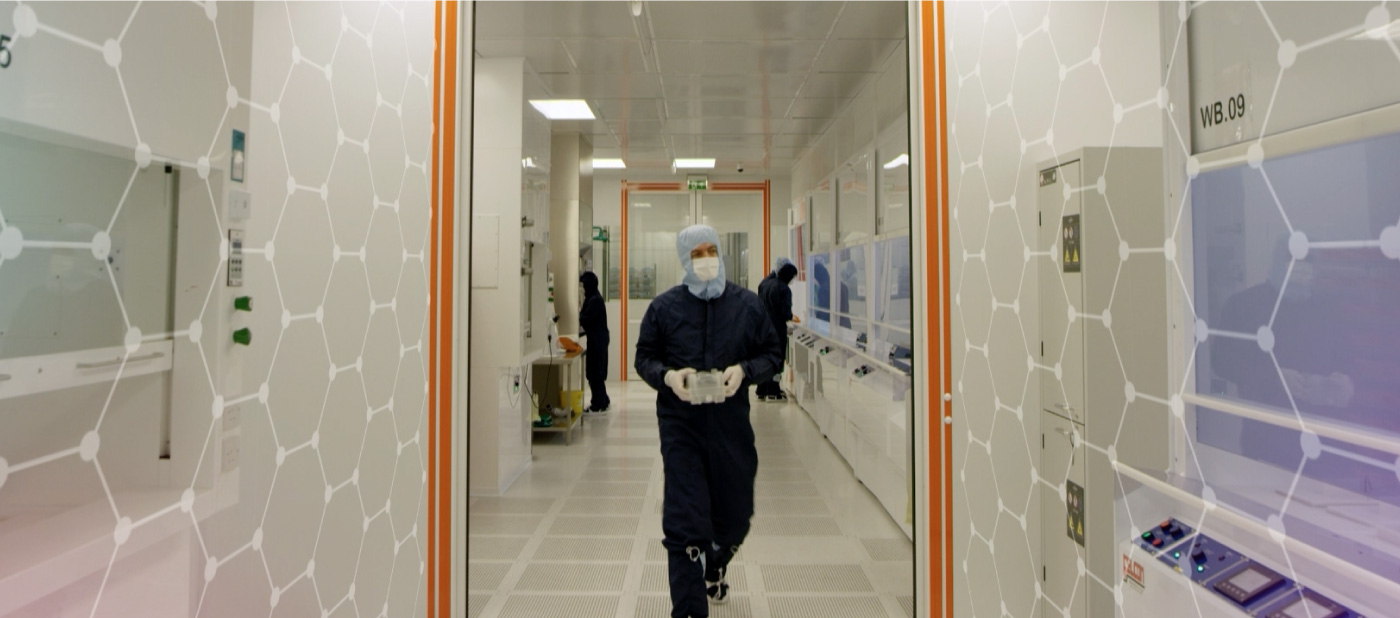Investment by the Engineering and Physical Sciences Research Council (EPSRC) will be matched with funding from key Partners.
The EPSRC has confirmed that the Henry Royce Institute for advanced materials has been successful with two major capital proposals which align into pressing national priorities – namely the delivery of the UK’s National Semiconductor Strategy and the urgent need to ensure the UK’s strategic Foundation Industries continue to reduce their carbon footprint. The proposals correspond with Royce’s atoms to Devices (A2D) and Advanced Metals Processing (AMP) Research Areas.
This significant investment will flow into the two distinct themes:
- Support for the UK Semiconductor and Quantum Technology Strategies through investment in an advanced semiconductor wafer analytical capability (ASemi-WAC) based in the South Wales Compound Semiconductor Cluster at Swansea University and linked into early stage research taking place at Royce at Leeds – funding awarded £490k
- Support for improved sustainable manufacturing and circularity, sustaining the foundation industries through investment in Spark Plasma Sintering (SPS) / Field Assisted Sintering Technology (FAST) at Royce-University of Sheffield, in addition to induction heating for the Royce at Strathclyde (Advanced Forging Research Centre) Linear Hammer Forge based at Footprint Tools in Sheffield – funding awarded £510k
1. Support to the UK Semiconductor and Quantum Technology Strategies
This award represents a major co-investment with the Wolfson Foundation and Welsh Government’s SMART Capital Equipment Fund in a unique cluster instrument for characterising semiconductor wafers of a size and scale relevant to industry. The Advanced Semiconductor Wafer Analytical Capability (ASemi-WAC) is a state-of-the-art instrument which provides much needed Research, Development and Innovation (RD&I) capability for the UK semiconductor sector, offering the ability to analyse a full 8” wafer during the fabrication process without damage both structurally and chemically. The system has been specified in full and this additional funding will deliver a sustainable operational model.
The Royce A2D theme includes a portfolio of research activities linked to the South Wales Semiconductor Cluster, strengthening the Institute’s connection to this scale-up capability in a key national region. The ASemi-WAC capability is part of a larger project to create a nationally significant Semiconductor Analytical Suite (SAS) within the Centre for Integrative Semiconductor Materials (CISM) at Swansea University. The ASemi-WAC instrument will be managed as part of the CISM-open access infrastructure and will form part of Royce UK-wide facilities. It will be located in the new SAS and the ASemi-WAC facility will come on-line in late 2024.
Edmund Linfield, Professor of Terahertz Electronics at the University of Leeds and Royce Atoms to Devices Research Area Lead said:
“This is a really exciting opportunity for the Royce ‘Atoms-to-Devices’ research area to link with the state-of-the-art Cleanroom facilities in Swansea’s Centre for Integrative Semiconductor Materials, and the industrial supply chains in South Wales.
“It will provide a really valuable UK facility for academia and industry as new discovery-led device concepts are scaled to prototypes and manufacture, providing the necessary metrology and quality control to enable successful technology translation.”
Paul Meredith OBE, Professor of Materials Physics, Director of the Centre for Integrative Semiconductor Materials and Sêr Cymru National Research Chair at Swansea University added:
“The ASemiWAC will be part of the advanced analytical capabilities of the new £55m Centre for Integrative Semiconductor Materials at Swansea University with close collaborative links with Royce and the University of Leeds Bragg Centre for Materials Research.
“This ground-breaking instrument is part of an advanced analytical suite for studying semiconductor wafer chemical, structural and electrical properties and will be an invaluable addition to the underpinning RD&I capabilities that support the South Wales and UK semiconductor sector.”
2. Capability for improved sustainable manufacturing and circularity
This part of the award forms a co-investment with Royce Partners the Universities of Sheffield and Strathclyde (Advanced Forming Research Centre) and will see the replacement of a conventional 12 year old, Spark Plasma Sintering (SPS) / Field Assisted Sintering Technology (FAST) unit with a modern state-of-the art unit, as well as a new Heating Unit for the Royce-Linear Hammer Forge situated at Sheffield-based Footprint Tools. Importantly the new unit will be capable of hybrid heating, the latest trend in sintering technology (a heat treatment process where loose material such as powder, is subjected to high temperature and pressure to make a new solid billet).
Royce and UK are world leaders in sustainable technology that enable metallic waste streams, such as machining swarf/chips and unusable additive manufacturing powder, to be processed into billets for subsequent forging and rolling. Royce is supporting a range of industries, including vital UK forging businesses in the high value manufacturing supply chain, to invest and develop the FAST-forge technology for next generation, near-net shape components utilising powder/swarf waste streams for new products in sectors including defence, aerospace, electric vehicles, biomedical components and emerging hydrogen electrolyser technology.
Improvement of circularity and resource efficiency across this range of applications offers new routes to supply chain resilience, and improved functionality of equipment also allows for investigation into alternate critical materials and minerals beyond metallic systems – for example recycling of RE magnets via FAST/SPS or processing of novel functional ceramics for telecommunications applications.
Professor Martin Jackson, Royce at the University of Sheffield Partner Lead, said:
“The key gaps that are restricting UK industry from developing new component designs through SPS/FAST – which is more economical than hot isostatic pressing – and downstream forging, is the heterogeneous thermal profiles in which conventional SPS/FAST and traditional gas furnaces can be unreliable, producing variations in product mechanical properties and performance. Such thermal heterogeneities also restrict the ability to generate reliable data for creating digital twins of the workpiece and presses.
“The new FCT H-HP D25 SPS/FAST machine and Induction Heating Unit will provide a step change in high-quality data generation for simulations to help develop a true digital thread from powder through to final net shape component.”
The Sheffield team is highly experienced in the installation, operation and maintenance of conventional SPS/FAST technology; the new unit will be situated at the Royce Discovery Centre and supported by existing technical services and infrastructure. The Induction Heating unit will be similarly managed by the Royce at Strathclyde/AFRC who have significant experience in operating heating units for hot forging and acquiring data for simulations. It will have its home next to the 1.4 million state-of-the-art Royce linear hammer forge situated within Footprint Tools.



